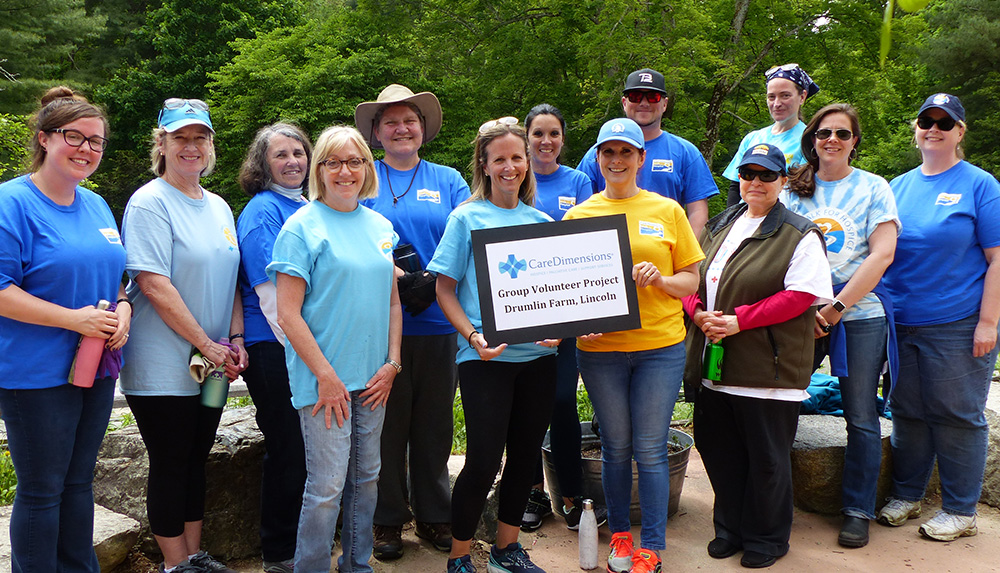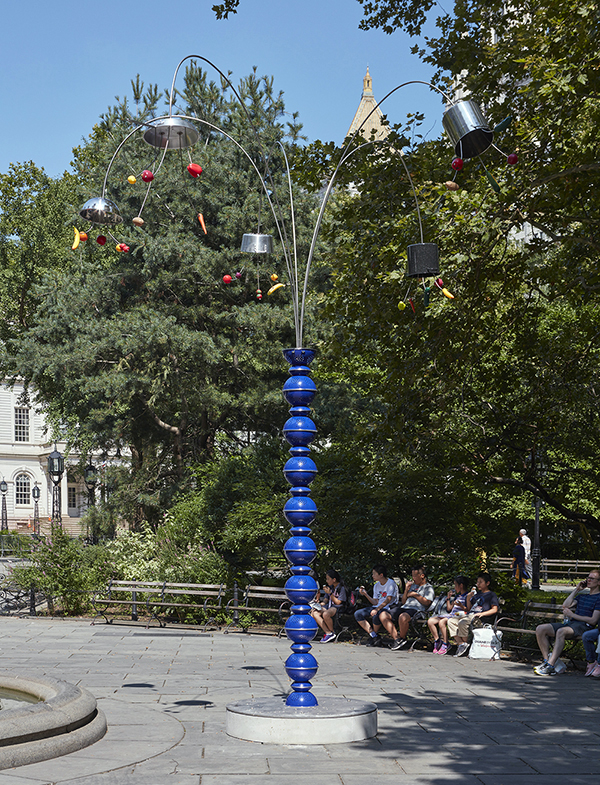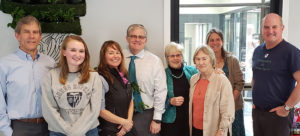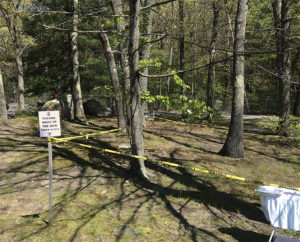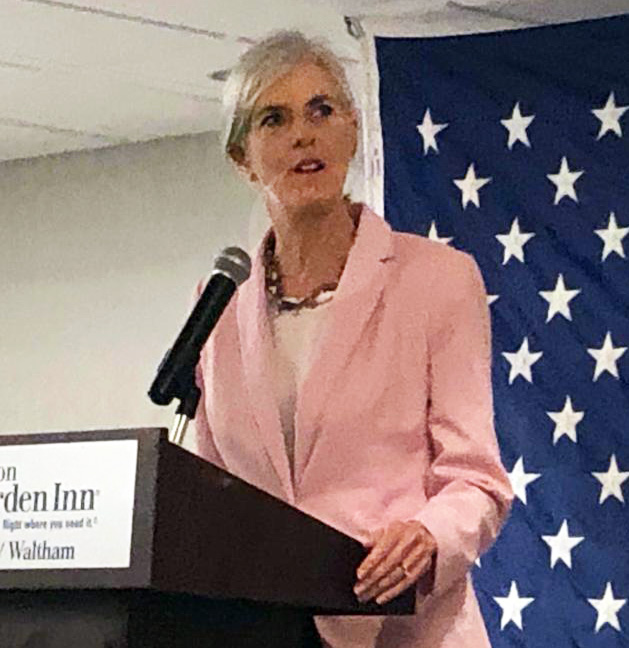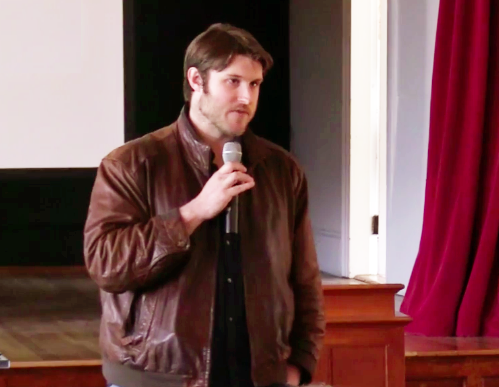Hospice volunteers come to Drumlin Farm
More than a dozen Care Dimensions employees recently volunteered at Mass Audubon’s Drumlin Farm in Lincoln to plant vegetables, herbs, and flowers that will the farm will go to CSAs, farmers’ markets, and cafeterias. The farm day was part of the company’s employee volunteer program in which selected employees volunteer with a community organization located within the company’s service area. Last year, the Care Dimensions company opened an 18-bed hospice house in Lincoln, and it also has offices in Waltham and Danvers.
Food donations needed in summertime
Summer is a particular time of need for donations to the St. Vincent de Paul Food Pantry. During the school year, students can get free or reduced-price lunch at school, but now that the academic year is over, more food is needed to compensate for the loss of these lunches. Please donate canned goods, cereals, spaghetti sauce, diapers, snack foods, etc. The pantry is always looking for healthy treats, gluten-free, and reduced-salt items as well. Bring items to St. Joseph Church (side door, basket on the floor) or the Parish Center at St. Julia Church (374 Boston Post Rd., Weston).
Get free books at the library
Summer is actually spring-cleaning time at the Lincoln Public Library, where summer interns help process discarded books for the public to pick up for free. The library scans selected books to see if its used book re-seller will take them, then offer put them on the discarded books cart in the library’s lower stack level downstairs. Some of the books are in good condition; others have been well loved and will be replaced by newer copies. Note: The books aren’t meant to take the place of our Friends Book Sale Cart — those books are all in good condition, and sales support the library programs.
Residents can now apply for building permits online
The Lincoln Planning Department is updating its services to include online applications for building permits. Applicants may click here, create an account, and apply for a permit. Only building permit applications are available online, but electrical, plumbing and gas will be added in the future. Anyone with questions regarding the system may call Lincoln IT Director Michael Dolan at 781-259-2702.
Two new outdoor installations at deCordova
Two new sculptures were recently unveiled at the deCordova Sculpture Park and Museum and will be on view until the end of December. In “PLATFORM 24: Wardell Milan, Sunday, Sitting on the Bank of Butterfly Meadow,” New York artist Wardell Milan adapts one of his lush, intricate photo-dioramas to a monumental scale. Working with photography, sculpture, drawing, and collage, he stages intricate maquettes of found imagery to create compositions of pastoral landscapes populated by bodies of diverse genders and racial identity. The PLATFORM series at the deCordova includes one-person commissioned projects by early- and mid-career artists that engage with deCordova’s unique landscape.
“Kitchen Trees” is the first large-scale, public work by B. Wurtz. Its trunk is composed of blue colanders stacked in a slender column with thin metallic branches leading to overturned pots and pans, out of which plastic fruits and vegetables appear to fall. The sculpture’s form is partially inspired by the bulbous bronze fountain in New York’s City Hall Park where “Kitchen Trees” was first displayed alongside four other sculptures from the same series. At deCordova, the whimsical piece evokes a tropical palm tree, in striking contrast to the towering pines and elegant beeches that thrive in New England.
